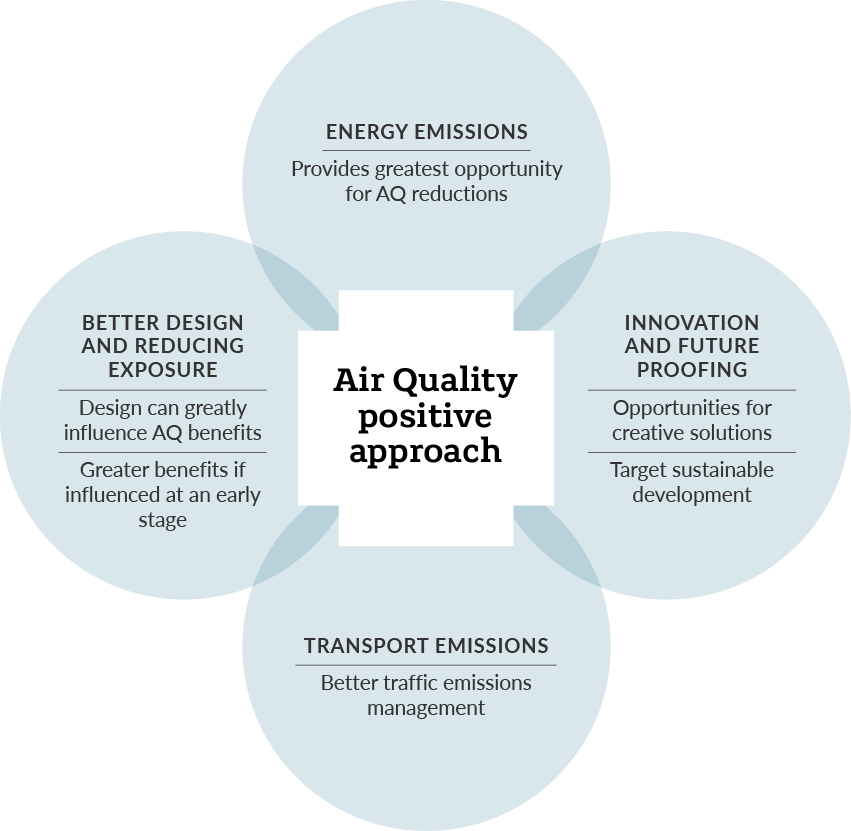Insights
Investing in air quality for sustainable computing.
Can data centres be air quality positive?
With the world’s growing online presence, the need for data centres to store our information is greater now than ever before. Can data centres be air quality positive – helping to bring about a beneficial influence on local air and contributing to positive change?
The health and wellbeing benefits of improved air quality, not just for humans but the wider environment, can be implemented and delivered in a planet-conscious way, with the potential to go above and beyond compliance.
The challenge
The requirement for a reliable power supply makes contingency methods for the delivery of backup power an absolute necessity. The most common and often viable option for backup power is the diesel generator – with other options including alternative fuel generators, fuel cells and even hydrogen power. The emissions can impact the health of the environment – human and ecological – with requirements for legal compliance also needing to be taken into account. When we consider that the typical data centre consists of approximately 100,000 servers, needing up to 100MW of power support, this could require up to 60 backup generators. The emissions from up to 60 large backup generators can have major impacts on local air quality if design is not duly considered at an early stage. Moving this to a greater level of consideration – in terms of embodied carbon, lifecycle analysis and GHG emissions – can make for an engaging challenge that requires an experienced and holistic approach to help with delivery of an air quality positive statement.
An air quality positive approach
Air quality positivity aims to maximise benefits to air quality in and around large sites while keeping exposure to sources of poor air quality low for those in the vicinity of the building.
There are four key areas to be considered as part of this approach:

Air quality positive data centres
There is a range of measures that can be implemented to help data centres align with the air quality positive approach.
These measures require consideration throughout the design, build and operation and include preventing exposure through design, fuel type and emission control technologies, reduction through green infrastructure and off-setting through green infrastructure and heat recovery.
Backup generator flue design
- Crucial for air quality to be considered at an early stage
- Can have a large impact on pollutant dispersion
- Optimisation has the potential to minimise air quality impacts at nearby receptors
Hydrotreated vegetable oil 100 fuel
- Advanced biofuel made from 100% renewable and sustainable material
- Can be used as an alternative to fossil fuels
- Biodegradable and has a lower impact on air quality than pure fossil fuel
Selective catalytic reduction
- Advanced emissions control system
- Can reduce NOx emissions by up to 90%
- Can reduce PM10, PM2.5, CO and TOC emissions
Green infrastructure
- Provides benefits through natural solutions implemented through manmade methods
- Can be implemented in the form of green walls on the façade
- Potential to remove approximately nine cars’ worth of PM10 per year per m2
Heat recovery
- Data centres generate significant amounts of heat
- Subsequently require vast amounts of cooling
- Excess heat can be exported to nearby homes and businesses
- Already being implemented: swimming pool heated by Deep Green in Devon, greenhouse being heated by Equinox in Paris, towns being heated by TikTok in Norway
Achieving air quality positivity for data centres does require input from specialists and experts – with a holistic approach required to provide true value. Cross-disciplinary collaboration is crucial and with this it is possible to move above and beyond compliance and help move towards a more sustainable data centre.
We can provide a bespoke approach and identify optimal measures to suit the project. Let’s talk: OliverParsons@hoarelea.com; ChrisRush@hoarelea.com